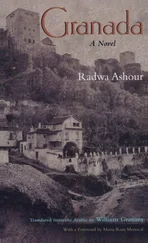The battleship is the heroine of the story. We follow the history of its birth, even its prehistory: it was one of six vessels that surpassed everything that went before. The United States decided to build them at the beginning of the Second World War, to support its forces in the probable theater of operations in the Pacific Ocean. On December 7, 1942, it was commissioned and christened, and its name was recorded on the rolls of the American Navy. Its official birthday was not celebrated until it was delivered for duty and assigned its first task in the war, on May 23 of the following year. The battleship took part in all US wars from the middle of the twentieth century on: the Second World War in Japan and the Philippines, in the forties; the Korean War in the fifties; Vietnam during the years 1968 and 1969, after an overhaul. Then at the beginning of the eighties there was another overhaul with the addition of launchers for long-range Harpoon and Tomahawk missiles, and afterward it went to the Mediterranean, bound for Lebanon. In 1991 it headed for the Gulf.
The account of the life of the battleship is gripping. We follow its movements, a floating structure wandering the high seas with more than two thousand men on board. It carries them to the Pacific Ocean, to the Atlantic, to the Caribbean, to the Mediterranean, and to the Gulf, clear under the sun, foggy and cloud-covered in the rain, shining with lights in the dark of night. We observe it closely as it carries out its task with zeal, precision, and competence: it points its guns and fires. It hits. Its crew — officers and soldiers, sailors and doctors, mechanics and janitors, those in charge of the food service and cooks — is a lively crew. All of them work. In the kitchen, for example, they produce 1,800 loaves of bread daily and 250 gallons of ice cream.
At the end of its service the New Jersey was retired, its record filled with the decorations it had collected, more than any other American battleship: nineteen medals. Two stars for its outstanding role in the Second World War, four stars for its performance in the Korean War, two stars for its accomplishments in the Vietnam War and four stars for its services in the Lebanese War and the Second Gulf War.
In the second part of the story we come to know the battleship better. In the next stage it was decommissioned and turned into a museum in Camden, New Jersey, where it’s anchored on the shore of the river. The visitors are men and women, young and old, school excursions meant to give the pupils patriotic knowledge and education. Families with their children tour all parts of the ship, going down into its depths, passing through its corridors in files. They see the officers’ rooms and the soldiers’ beds, the steering and control rooms, the admiral’s and the captain’s quarters. The dining rooms, small, comfortable rooms where the officers had their meals and the large mess where the soldiers and sailors ate. The engine room, the clinic, the repair shop. They go up to the deck and climb the towers, looking down from windows here and there. They look out at the waters of the river, at the Seaport Museum nearby, at the sky. They return to the deck and stand in front of the guns, raising their heads, dazzled by their hard steel and wide mouths. They listen carefully to the explanations of the tour guide or to the recordings they hear via small earphones. They chatter and laugh, or someone records observations in his notebook, or takes pictures of his family and friends.
It’s not only a museum open for visits after purchasing a ticket, more costly for individuals and less expensive for school trips or tour groups. Part of it can also be rented for a dinner party, a small one in the captain’s room for no more than twenty guests, or a big one on the deck of the ship, with dinner for four hundred people seated or a reception for eight hundred, most of them standing. A wedding can be held, or a hotel stay can be arranged on the weekend for young people who want to spend the night in the soldiers’ beds. School groups and individuals can buy inexpensive, prepared meals from the canteen. Anyone who wants to can bring a little brown bag, with a sandwich he’s prepared at home or bought from a grocer; when he enters the battleship he hands over the brown bag, and at the end of his tour he takes it back to eat whatever is in it.
After that comes the third part of the book: three pages. The battleship, refitted to add sixteen Harpoon rockets and thirty-two long-range Tomahawks, enters the Mediterranean in 1983. It approaches the Lebanese shore and joins the American fleet, which can be seen from the beach in Beirut. The task this time is not war but peace, supporting the multinational peacekeeping forces. Because the war in Lebanon has ended, because there is a ceasefire, because Israel, after the aerial bombardment and the invasion and the siege, can depend on an allied Lebanese government and an allied army. The Druze are not its allies, so how will they take control of the mountains, Jabal al-Druze, where they live? These are details the leaders will decide. The New Jersey executes its tasks as always: its lively crew loads the missile into the launcher and closes it carefully, then boom. The missile is fired, leaving an enormous block of dark red flame in the sky over the sea, which quickly becomes mixed with orange and yellow, then a thick black devours the colors and gradually changes into smoke. Afterward there’s silence, crossed by clouds like tufts of white cotton, without any thickness, dispersing near the ship and disappearing. The sailors put another missile in the launcher and close it carefully. Boom.
In the mountains, in the piled-up houses of the Banu Maarouf, are the residents of Jabal al-Druze: old men with their traditional turbans; farmers who resemble their grandfathers because they never changed the look of their shirts and trousers; young men who, unlike their fathers and grandfathers, wear shirts or tee shirts and running shoes; grandmothers; mothers; girls with braids or childish short hair; the very young, who cannot yet walk or talk; the toddlers who have learned to walk and talk. The walls cave in on them and burn. They die, burned or bleeding or because something in the body suddenly failed, so they die even though their form is intact.
Maryam said, “You’re being ridiculous, Mother! You have money!”
I said, “What I have is sent by Sadiq for your school fees and our living expenses. I won’t invite my friend to come at Sadiq’s expense.”
She laughed, “The bracelet you sold was bought by Sadiq; it’s his money in both cases!”
I nearly said that he gave me the bracelet, so it had become mine, to do with it or its value as I pleased, but I did not speak. I called Wisal again to set the date for her trip. She said, “We’ll harvest the olives and press them, then I’ll come to visit you.”
I bought the airplane ticket and sent it to her, and began to count the days and wait.
Maryam said with a laugh, “The tutor’s in luck.”
I said, “I don’t understand Egyptian proverbs.”
She said, “The tutor, that’s the Qur’an teacher, is in luck when he has two completions of the Qur’an on the same night. That means he’s invited to recite the Qur’an twice and he’s given two feasts on the same night.”
I laughed. Maryam amazes me with how fast she picks up the Egyptian dialect, with its proverbs and idioms. Yes, it was two completions in one night; as I was waiting for Wisal, Fatima called and said, “I’m in the country,” adding that she would come to visit us for three days.
“Only?”
“I have to get back to Canada, to my work and the kids and Hasan.”
“Fatima, can I ask a favor of you?”
“Please do.”
Читать дальше












